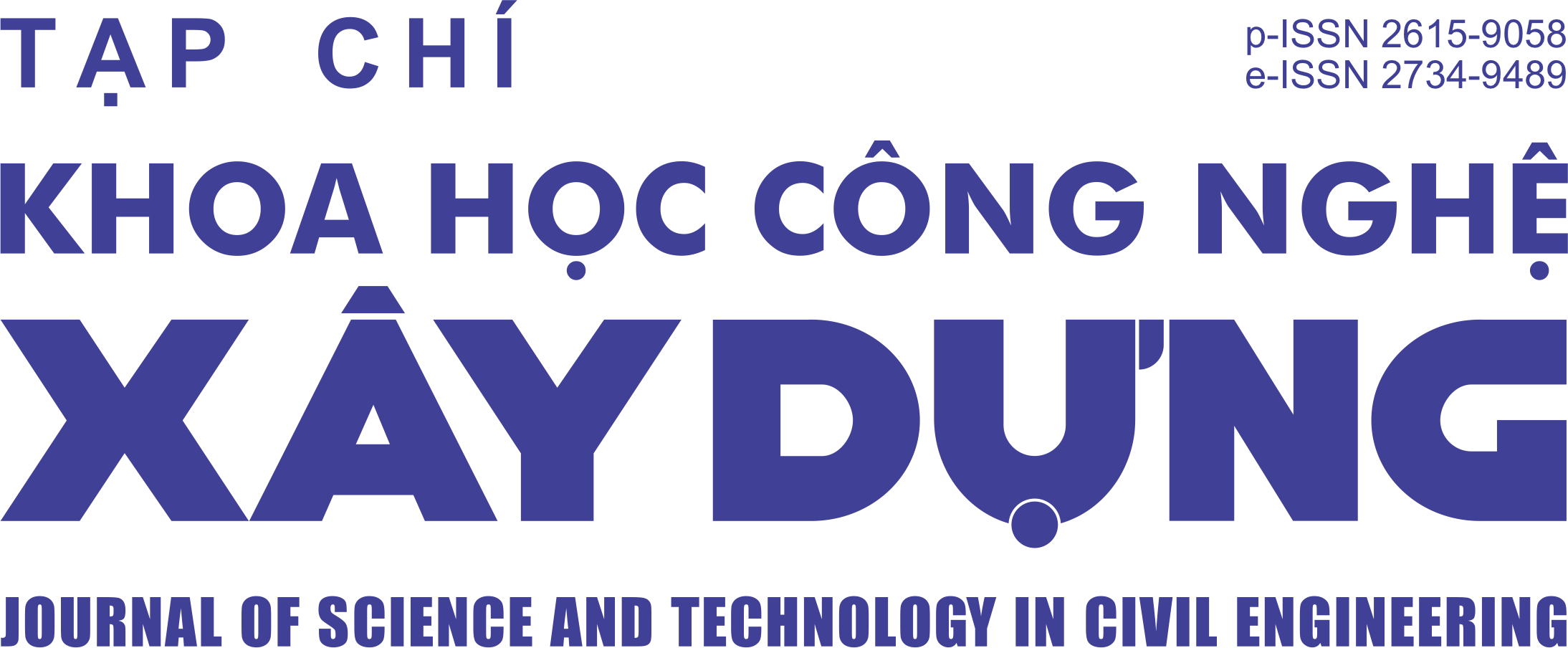Effect of temperature on electrical resistivity of high-performance fiber-reinforced concretes
Abstract
The effect of temperature on the electrical resistivity of high -performance fiber-reinforced concretes (HPFRCs) were highlighted in this investigation through an experimental approach. There are four HPFRC mixtures as follows: HPFRC0 (no fiber), HPFRC1 (macro steel fiber, 1.5% by volume), HPFRC2 (micro steel fiber, 1.5% by volume), and HPFRC3 (hybrid fiber, 1.0% by volume macro steel fiber blended with 0.5% by volume micro steel fiber). All HPFRC specimens had an identical size of 40 × 40 × 160 mm3 (width x depth x length). The electrical resistivity of HPFRCs was measured under three temperature levels, including 0oC, 25oC, and 50oC using a chamber machine. The research proved that the electrical resistivity of the studied HPFRCs obviously decreased with increasing of the temperature ranging from 0oC to 50oC. Generally, the temperature exhibited a considerable effect on the electrical resistivities of cement-based composites.
Downloads
Copyright (c) 2023 Hanoi University of Civil Engineering

This work is licensed under a Creative Commons Attribution-NonCommercial-NoDerivatives 4.0 International License.
1. The Author assigns all copyright in and to the article (the Work) to the Journal of Science and Technology in Civil Engineering (JSTCE) – Hanoi University of Civil Engineering (HUCE), including the right to publish, republish, transmit, sell and distribute the Work in whole or in part in electronic and print editions of the Journal, in all media of expression now known or later developed.
2. By this assignment of copyright to the JSTCE, reproduction, posting, transmission, distribution or other use of the Work in whole or in part in any medium by the Author requires a full citation to the Journal, suitable in form and content as follows: title of article, authors’ names, journal title, volume, issue, year, copyright owner as specified in the Journal, DOI number. Links to the final article published on the website of the Journal are encouraged.
3. The Author and the company/employer agree that any and all copies of the final published version of the Work or any part thereof distributed or posted by them in print or electronic format as permitted herein will include the notice of copyright as stipulated in the Journal and a full citation to the Journal as published on the website.







